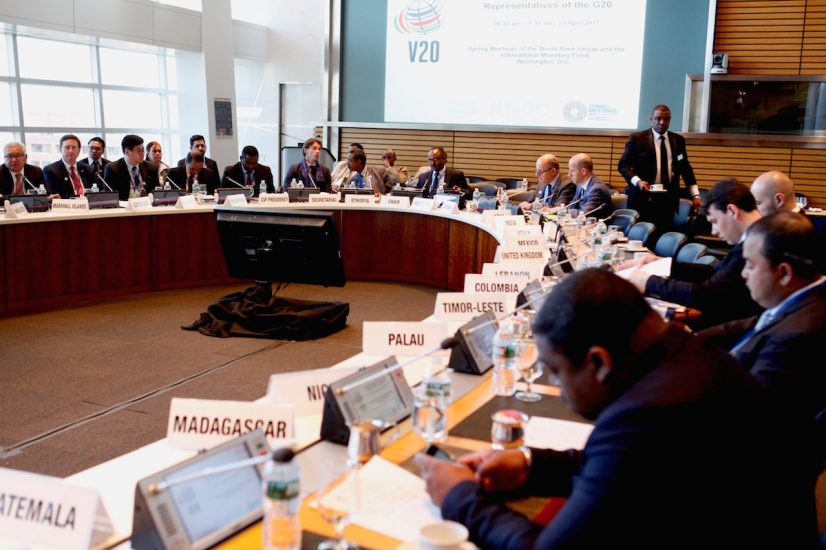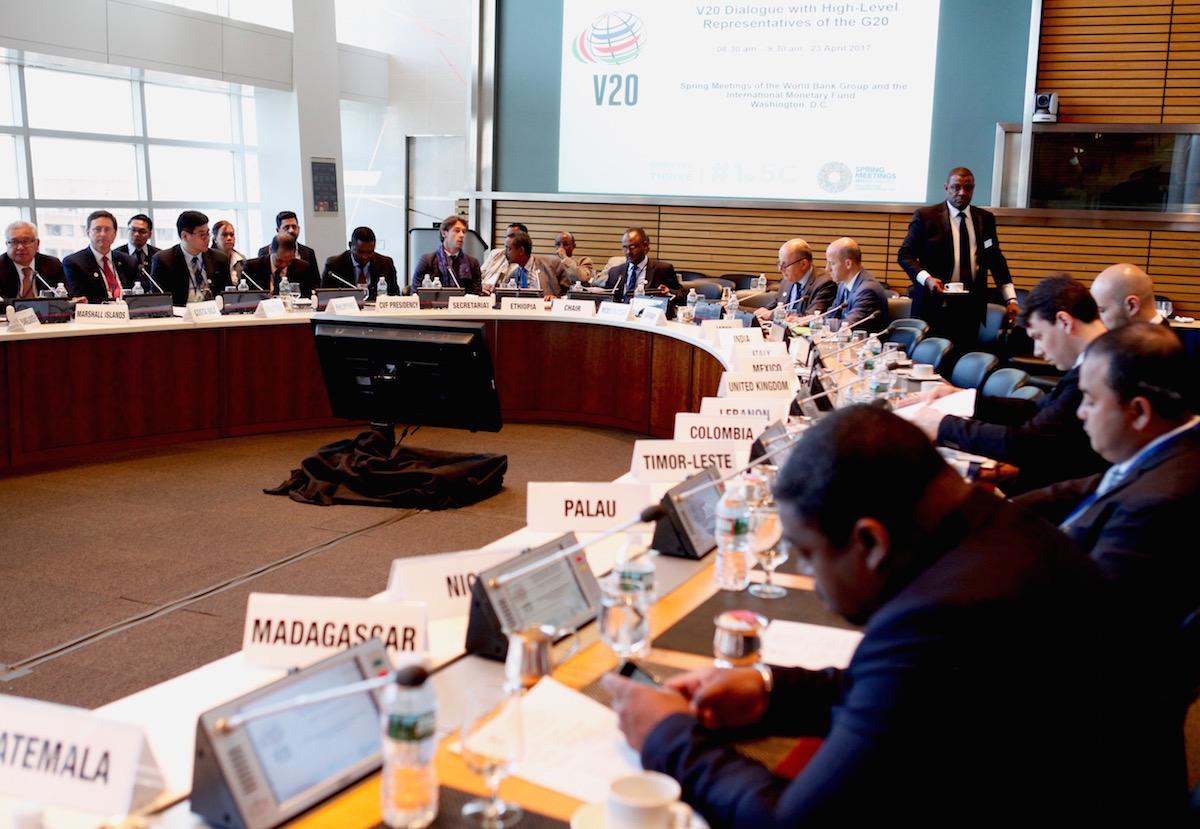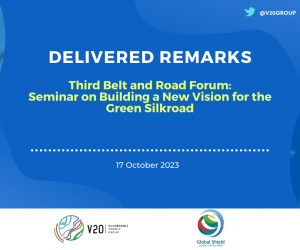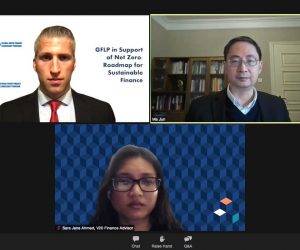David meets Goliath: First ever V20 – G20 meeting highlights the mutual benefits of climate action

Blog post by Gerrit Hansen, Germanwatch, April 2017
https://germanwatch.org/en/13801
The climate vulnerable forum (CVF), now uniting 49 of the world’s countries most vulnerable to climate change, has again taken centre-stage in the fight against global warming and for an equitable international climate regime. At the recent IMF and World Bank spring meeting in Washington, the finance ministers of the group, the Vulnerable 20 (V20), met with representatives of its “big brother”, the G20, to discuss issues related to climate finance, effective mitigation policies, support for adaptation and resilience and above all: enhanced cooperation.
After their vital role in negotiating the landmark Paris climate agreement, and anchoring the 1.5 degree temperature goal the group has repeatedly positioned itself as a global leader in innovation and ambition – despite their limited economic prowess. In their Marrakesh Communique launched 2016 during COP22, the CVF pledged to transition to 100% renewable energy provision as soon as possible, and by mid-century at the latest. A report commissioned by the CVF and UNDP underscores that the quest to stay below 1.5°C global warming represents an opportunity to leap-frog into better, healthier, more stable and independent renewable economies.
The V20 brought that spirit to the table in Washington: urging the worlds’ most powerful economies to follow suit and embrace the opportunity offered by the modernization and greening of their economies. The V20 Ministerial Communique adopted at the 4th Ministerial Dialogue later that day states: “Insufficient resources from climate protection will only create economic instability. Investing in climate action, by contrast, is critical to inclusive development, job security and economic growth. This is an opportunity not just for the V20 economies but for the developed economies as well.”
The V20 called on G20 countries to deliver ambitious climate change action as part of the G20 outcome in July. “For vulnerable countries, the 1.5C limit is a matter of survival. It requires immediate and swift action by the global community, and above all, the major industrial powers,” said H.E. Macaya Hayes, Ambassador of Costa Rica to the USA. “We set our sights towards 2018, the trigger year when all countries, especially the major industrial powers, need to commit to enhance their climate ambition before the end of the decade.”
During the meeting, speakers from Marshall Islands, Ethiopia, Costa Rica, and Barbados urged G20 countries to deliver their long-term low-emissions development strategies before 2020, and join the V20 in leading towards universal coverage of emission through carbon pricing by 2025. A particular emphasis was put on the need to end fossil fuel subsidies. The V20 recognized the need to be rigorously checked whether fossil fuel consumption subsidies provide an actual benefit to the poor, and subsequently design their replacement worldwide without harm to those relying on them for their basic energy needs. However, the group is much stricter when calling for the end of market distorting fossil fuel production subsidies. The latter should be removed immediately and no later than 2020, and the G20 should adopt a clear timeframe for fossil fuel subsidy elimination – which the G20 fails to deliver since 2009.
However the V20 did not only appeal to the major emitters. In keeping with their frontrunner-tradition, the V20 announced it would pioneer innovation in climate finance to help secure continued economic development among its members while tackling the costly economic impacts of climate change. They decided to establish a Task Force of independent experts to assess the financial requirements for climate action consistent with the Paris Agreement, with a view of delivering maximal resilience and a low carbon development consistent with 1.5 degrees Celsius. They also resolved to establish a technical committee to develop multi-country financing initiatives towards the advancement the V20 Action Plan and its aim of attaining a significant increase in climate investment in V20 countries.
While the G20 finance ministers remained strangely silent on the matter, the V20 welcomed the recommendations from the Financial Stability Board Task Force on Climate-related Financial Disclosures, highlighting that the compatibility with the 1.5 degrees limit should be integral part of what these disclosures should assess. V20 pledged its collaboration in the effective implementation of those recommendations, and in further study of the development policy implications of green finance and risk instruments. While reiterating the criticality of the $100 billion commitment and the need to significantly upscale concessional financial means via Multilateral Development Banks for achieving transformational change in line with the Paris Agreement the V20 also stressed the need to increase prioritization of adaptation finance to ensure a 50:50 balance of finance for adaptation and mitigation by 2020, calling for continued scaling up of financial support in a balanced manner.
The value of the V20-G20 dialogue that has now been initiated was clearly recognized by G20 and V20 representatives present at the meeting. It can become an important engagement tool that highlights how climate action is mutually beneficial to different economies. As a next step, this partnership ought to be pursued and deepened with common goals. The V20 Communique concludes that “it is time to act strategically to advance truly transformational programs that redesign nothing less than the investment agenda of the world economy.”





